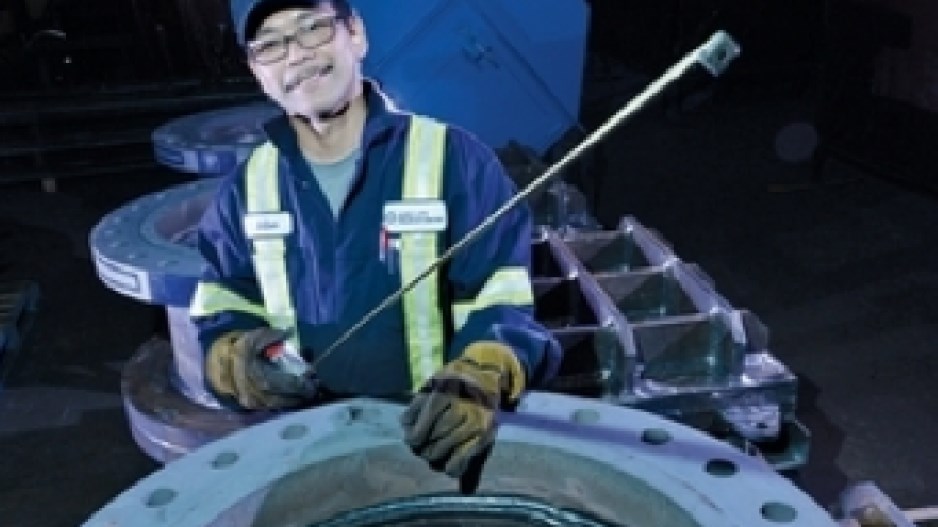Martin Cox arrived in Canada from the U.K. as a skilled migrant worker in the midst of the early 1980s recession. The economy, he recalled, was in a similar state as it is in now, but the main difference then was that there was no shortage of qualified tradespeople.
The president and owner of Cox Metalworks said he looks to skilled migrant workers to fill 30% to 50% of the vacancies at his Surrey-based company.
“Our biggest problems to date are labour shortage and labour skill level available in the marketplace.”
Cox added that the issue is so constraining, he'll likely move his custom manufacturing company to Mexico if the proposed liquefied natural gas (LNG) industry takes off in B.C., which will further drain the local labour pool.
“Anyone down here is going to have to pay an extortionate amount of money just to keep whatever workforce they have,” he said. “Instead of bringing migrant workers up to B.C., we're going to where the migrant workers are, and we'll operate under the laws of that country.”
The B.C. Labour Market Outlook forecasts about 150,000 job openings up to 2020 in the trades, transport and equipment operators sectors. Furthermore, the B.C. government's 2010-20 trades outlook report predicts labour shortages are expected for the trades sector as a whole by 2016.
But that shortage is already a reality for Dan Reader, president of Murray Latta Progressive Machine. He said about half the tradespeople at his Surrey custom machine manufacturing company are skilled migrant workers.
“We're always looking [to hire] locally here, but the truth of the matter is that there is a definite skilled labour shortage … and it's going to get worse,” Reader said, adding he's also concerned about the impacts the proposed LNG industry would have on businesses in Surrey.
Premier Christy Clark has claimed the LNG industry could create up to 100,000 jobs in B.C.
In April, the government accepted a recommendation from the premier's LNG working group calling on the province to develop a plan to use skilled migrant workers to satisfy labour shortages.
Cox and Reader both said they're not convinced there are enough qualified skilled migrant workers available, period.
Despite this shortage, skilled migrants still face myriad challenges finding work, according to Satbir Cheema. The employment director at Progressive Intercultural Community Services said unrecognized credentials, no local experience and language issues are all common barriers faced by immigrants arriving at his Surrey office every day.
“It's very surprising because over the last 10, 15 years the education levels and the skill level of immigrants have gone up, yet it's more difficult to get a job,” he said.
Statistics Canada data shows 51% of immigrants arriving in Canada between 2001 and 2006 had a university degree compared with 20% of the Canadian-born population. Meanwhile, immigrants account for 28% of B.C.'s population and 26% of its skilled workforce.
Cox said part of the issue is that the Canadian government is targeting the wrong countries for skilled labour.
“English as a second language is very difficult in a manufacturing facility because it's very hard to communicate,” he said.
Cheema acknowledged there are different expectations when someone arrives in a new country.
“Some immigrants do have challenges with languages, and they do have challenges with some cultural issues. But that doesn't take long to get over.”




